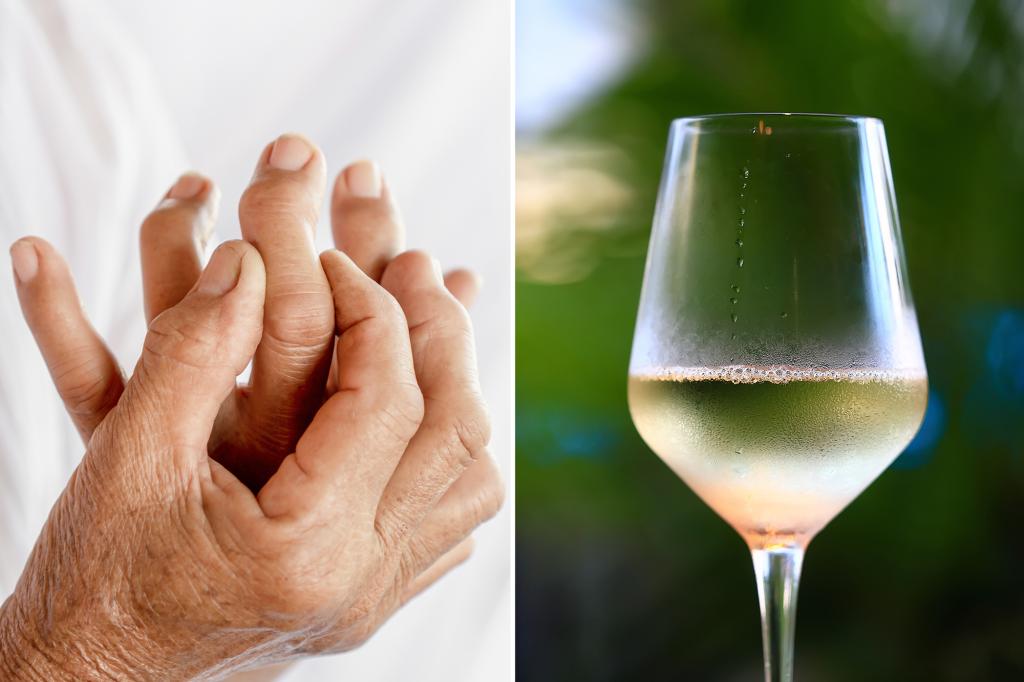A new study has found that certain alcoholic beverages can increase the risk of developing gout, a painful form of arthritis. Men who consume alcohol at least five times a week have a two-fold higher risk of gout compared to those who drink less frequently. Women who drink more alcohol also have a moderately elevated risk of gout. This study, published in JAMA Network Open, analyzed the drinking habits of more than 400,000 UK residents.
Gout is the most common form of inflammatory arthritis, caused by the accumulation of uric acid in the joints. Approximately 9.2 million US adults have gout, which can be triggered by various risk factors including genetics, gender, and dietary choices. Men are at a higher risk for gout than women, with postmenopausal women having a higher risk than premenopausal women. Alcohol consumption has long been known to elevate the risk of gout and can trigger recurrent attacks, making it essential to manage alcohol intake for individuals at risk.
The study found that consumption of Champagne, white wine, beer, cider, and spirits was linked to a higher risk of gout in both men and women, with beer and cider showing the strongest association. For women, spirits were found to increase the risk of gout more, while for men, red wine was associated with a modestly higher risk. However, no significant association was found for fortified wine for either sex. Participants reported their alcohol consumption between 2006 and 2010, making it unclear if their drinking habits changed over time, which is one of the study’s limitations.
Dr. Diane Horowitz, director of the Northwell Health Rheumatoid Arthritis Center, emphasizes that gout can be managed through lifestyle changes such as reducing alcohol consumption, avoiding certain foods associated with gout such as red meat, organ meats, and some seafood, and staying hydrated by drinking more water. Additionally, medication can help prevent gout flares and manage the condition effectively, preventing future damage to the bones. It is crucial for individuals who suspect they have gout or have experienced gout flares to consult their primary care doctor or a rheumatologist for proper diagnosis and treatment to prevent future flares.
The study’s findings shed light on the impact of different types of alcoholic beverages on the risk of gout among men and women. While previous studies have already established a connection between alcohol consumption and gout, this research delves deeper into the specific impact of different alcoholic beverages. Understanding the risks associated with alcohol consumption and gout can help individuals make informed decisions about their drinking habits to reduce the likelihood of developing this painful form of arthritis. By being aware of the risks and taking proactive steps to manage them, individuals can better protect their health and well-being.
Despite the limitations of the study, such as the reliance on participants’ self-reported drinking habits from several years ago, the findings provide valuable insights into the relationship between alcohol consumption and gout. By acknowledging the role of alcohol in raising the risk of gout, individuals can take proactive steps to reduce their risk and manage the condition effectively. Through a combination of lifestyle changes, dietary modifications, and appropriate medical interventions, individuals can mitigate the impact of gout on their quality of life and overall health. Seeking guidance from healthcare professionals and rheumatologists can help individuals develop personalized strategies to prevent gout flares and maintain optimal joint health.


